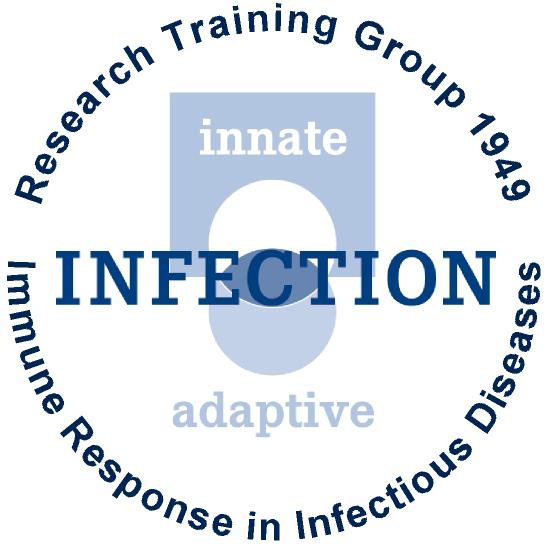Area I - Project 3 - Mengji Lu
Principal Investigator:

Dr. rer. nat. Mengji Lu
Institute for Virology
University Hospital Essen
University of Duisburg-Essen
Phone: +49 201 723 3530
Regulation of antiviral innate and adaptive
immune responses by TLR7 ligand and the
functional significance for viral hepatitis
Toll-like receptors (TLRs) mediate the activation of immune cells and are important for the initiation of specific immune responses. Specifically, defective TLR signaling leads to impaired adaptive immune responses and delayed hepatitis B virus (HBV) clearance in the hydrodynamic injection mouse model. We found that TLR7 agonists could stimulate peripheral blood lymphocytes to produce potent antiviral cytokines in vitro and modulate adaptive immune responses to HBV in vivo. While TLR7 stimulated production of antiviral cytokines could effectively inhibit HBV replication, the HBV-specific T cells are possibly required for complete HBV clearance from the liver. In the present study, we will analyze the activation status of immune cells induced by TLR7 agonist in the mouse model and examine the consequences of the pre-activation of the host immune system for adaptive immunity. We also ask whether the interferons (IFNs) or other cytokines produced by PBMCs after TLR7 stimulation are the major mediators of potent HBV inhibition. Finally, we will study whether TLR7 as an IFN-stimulated gene (ISG) may be increasingly expressed by TLR7-mediated IFN production in a positively regulatory loop, thereby resulting in overshooting responses in the host.
Publications
Li Q, Yan Y, Liu J, Huang X, Zhang X, Kirschning C, Xu HC, Lang PA, Dittmer U, Zhang E, Lu M. Toll-like receptor 7 activation enhances CD8+ T cell effector functions by promoting cellular glycolysis. Front Immunol. 2019 Sep 12;10:2191. doi: 10.3389/fimmu.2019.02191.
Zhang E, Lu M. Toll-like receptor (TLR)-mediated innate immune responses in the control of hepatitis B virus (HBV) infection. Med Microbiol Immunol. 2015 Feb;204(1):11-20.
Ma Z, Zhang E, Yang D, Lu M. Contribution of Toll-like receptors to the control of hepatitis B virus infection by initiating antiviral innate responses and promoting specific adaptive immune responses. Cell Mol Immunol. 2014 Nov 24. doi: 10.1038/cmi.2014.112.
Wu J, Huang S, Zhao X, Chen M, Lin Y, Xia Y, Sun C, Yang X, Wang J, Guo Y, Song J, Zhang E, Wang B, Zheng X, Schlaak JF, Lu M, Yang D. Poly(I:C) treatment leads to interferon-dependent clearance of hepatitis B virus in a hydrodynamic injection mouse model. J Virol. 2014 Sep;88(18):10421-31.
Liu J, Zhang E, Ma Z, Wu W, Kosinska A, Zhang X, Möller I, Seiz P, Glebe D, Wang B, Yang D, Lu M, Roggendorf M. Enhancing virus-specific immunity in vivo by combining therapeutic vaccination and PD-L1 blockade in chronic hepadnaviral infection. PLoS Pathog. 2014 Jan;10(1):e1003856.
Meng Z, Ma Z, Zhang E, Kosinska AD, Liu J, Zhang X, Zhou T, Wu J, Dahmen U, Dirsch O, Yang D, Roggendorf M, Lu M. Novel Woodchuck Hepatitis Virus (WHV) transgene mouse models show sex-dependent WHV replicative activity and development of spontaneous immune responses to WHV proteins. J Virol. 2014 Feb;88(3):1573-81.
Liu J, Jiang M, Ma Z, Dietze KK, Zelinskyy G, Yang D, Dittmer U, Schlaak JF, Roggendorf M, Lu M. TLR1/2 ligand-stimulated mouse liver endothelial cells secrete IL-12 and trigger CD8+ T cell immunity in vitro. J Immunol. 2013 Dec 15;191(12):6178-90.
Pei R, Qin B, Zhang X, Zhu W, Kemper T, Ma Z, Trippler M, Schlaak J, Chen X, Lu M. Interferon-induced proteins with tetratricopeptide repeats 1 and 2 are cellular factors that limit hepatitis B virus replication. J Innate Immun. 2014;6(2):182-91.
Kosinska AD, Zhang E, Johrden L, Liu J, Seiz PL, Zhang X, Ma Z, Kemper T, Fiedler M, Glebe D, Wildner O, Dittmer U, Lu M, Roggendorf M. Combination of DNA prime-adenovirus boost immunization with entecavir elicits sustained control of chronic hepatitis B in the woodchuck model. PLoS Pathog. 2013;9(6):e1003391.
Chen H, Pei R, Zhu W, Zeng R, Wang Y, Wang Y, Lu M, Chen X. An alternative splicing isoform of MITA antagonizes MITA-mediated induction of type I IFNs. J Immunol. 2014 Feb 1;192(3):1162-70.
Zhang X, Ma Z, Liu H, Liu J, Meng Z, Broering R, Yang D, Schlaak JF, Roggendorf M, Lu M. Role of Toll-like receptor 2 in the immune response against hepadnaviral infection. J Hepatol. 2012 Sep;57(3):522-8.


